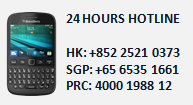An unusual cargo
Most mariners are aware of the dangers of carrying copra. Recently a Master on board a Member's ship was alarmed when he saw what he thought was smoke rising from a part-loaded cargo of palm nut shells.
The Master had also recorded steadily increasing cargo temperatures and when the cargo reached 60A°C he ordered loading to be stopped. His concern was that the cargo might spontaneously combust. Local Correspondents in Dumai, Indonesia advised that this was the first time this cargo had been shipped and they therefore had no experience of it.
Overnight the cargo temperature increased by a further 20A°C and it was decided to take advice from an expert surveyor. Although neither the surveyor nor his colleagues were familiar with the cargo it was ascertained that the cargo was not classified as dangerous under the provisions of the IMDG Code.
The cargo had been stored in the open in strong sunshine and wetted by several heavy showers. It had begun to heat up as a result of microbial growth. This process produces heat and steam (as the moisture in the cargo is driven off by the heat) but is not, strictly speaking, spontaneous combustion. Although temperatures can reach 80A°C and ship Masters should justifiably be concerned, the temperature will usually plateau at that level and will not rise further unless there is a high fat/oil content in the cargo which may cause a further reaction and cause temperatures to rise again to the point of ignition. Analysis revealed that the oil/fat content of the cargo in question was below one per cent and therefore the risk of self-heating to ignition was very remote. In addition, because the cargo was intended for use as fuel, there was no risk of the microbe generated self-heating affecting the merchantability of the cargo.
The surveyor was able to confirm, on the basis of a cargo analysis provided by the shipper, that loading could be resumed. The ship's holds were sealed for the voyage to Corigliano, Italy and instructions and equipment were provided to enable remote monitoring of hold temperatures and levels of oxygen and CO .
During the voyage temperatures in all the ship's holds declined as oxygen was depleted and CO levels rose. After precautionary ventilation of the holds to release any trapped steam/vapour before berthing, the ship completed discharge uneventfully.
The Association has had no previous experience of this cargo and whilst the cargo has all the hallmarks of the potentially dangerous copra cargoes, it does appear to be safe by comparison.
Source : Britannia Risk Watch Vol.11: No.2
June 2004





